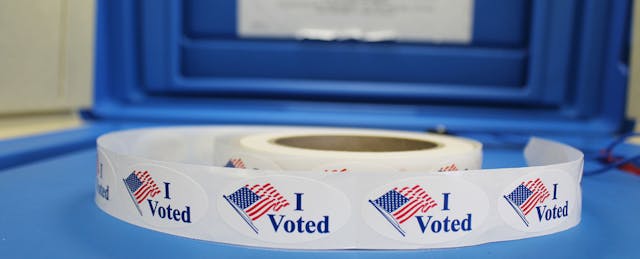In two of the world’s most acclaimed democracies, young people have been on the losing side of pivotal votes. In the recent weeks, 61 percent of Great Britons over the age of 60 voted to leave the European Union while 75 percent of those under 25 voted to stay. A recent study by Generation Citizen suggests that if 16- and 17-year-olds were allowed to vote and had voted at just the average rate of participation in the recent Brexit decision the ‘remain’ vote would’ve won. And on this side of the pond, while Donald Trump has been building momentum through the primary season, his approval rating among the younger generation hovers at a mere 25 percent.
This generational disconnect extends to other affairs as well. Young people’s interests are underrepresented at the polls. For proof, just look to the intractable progress on issues like increasing public education funding and lowering the interest rate on student loan debt, positions that young people overwhelmingly support.
The problem? Despite the fact that millennials are the largest age demographic, millennial voter turnout is abysmal, not only during the U.S. presidential primary season and the British referendum, but consistently over the past decade. In the 2014 midterm elections for example, only 19.9 percent of 18-to 29-year-olds cast a ballot, compared to 36.4 percent overall. This has led many to accuse our generation of being lazy, out of touch or confined to Facebook activism.
And while there are certainly exceptions, the fact that young people under-engage in the voting process undermines a healthy democracy. Fortunately, there is a simple fix.
By lowering the voting age to 16, we can strengthen our democracy and build a culture of civic participation at exactly the time when young people are entrusted with major societal responsibilities.
This concept is already gaining traction in places like Maryland, Colorado, Washington, D.C. and California, where voters in San Francisco will have the opportunity to vote on the question this November. Following the example of countries like Austria, Scotland, and Brazil—where 16-year-olds vote—advocates and lawmakers in these states are testing what happens when we lower the voting age in an effort to bolster civic engagement. As radical as it may sound, here’s the case for why states around the country would be wise to follow suit:
First, 18 is a terrible time to start voting. At age 18, most Americans are in the middle of a major life transition. Many young people leave their families and, often, their hometowns. In the first election they’re eligible for, they must either vote remotely, using an absentee or early-voting process, or register in a new precinct, where they have little to no history of engagement.
In contrast, at age 16, young people are usually surrounded by supportive teachers and families and newly-inspired by high school civics classes. It is logical to assume that this more stable environment would foster higher rates of voter participation. Case studies corroborate this claim. When Takoma Park, MD lowered its voting age for municipal elections in 2013, newly enfranchised voters turned out at higher rates than any other age group. Likewise, Brazil and Austria, which have long included 16-year-olds in the political process, have enjoyed higher turnout than America. These new voters are more likely to remain active participants. Research suggests that voting in one election can increase someone’s likelihood of voting again by 25 percent.
Policy areas such as education, criminal justice and taxation significantly and sometimes disproportionately impact 16-year-olds, yet they have no say in electing the officials who control these policies. What’s more, they’ll likely have to live with the effects of these decisions much longer than their elders.
Many complain that 16-year-olds will just vote like their families. And indeed, it seems only natural that one’s upbringing would be among the best predictors for how a person leans politically. But data from the 2014 Scottish Independence referendum found that nearly 40 percent of young people interviewed before the election held a view different from their parents. Furthermore, research shows that 50 percent of American millennials self-identify as Independents. Could it be that informed youth are less interested in partisan politics?
And while it’s true that 16-year-old brains are still developing and do not perform as well as older ones on impulse-driven decisions, the very deliberate process of voting requires “cold cognition,” which young people can handle just as well as adults.
If the science isn’t convincing enough, there’s always history.
Few would describe the high school-age Little Rock Nine as “immature” when they put their lives on the line to fight for integrated schools during the Civil Rights Era. We didn’t patronize 14-year-old Malala Yousafzai when she took a bullet as a soldier in the global struggle for girls’ education in Pakistan. And while the Boston walk-outs earlier this year were controversial, student leaders were able to remain peaceful and thoughtfully advocate for stopping school budget cuts. Rather than writing off the younger generation as incapable, what if we supported them to realize their own futures?
In the education policy community this concept is referred to as student agency.
Why shouldn’t 16- and 17-year-olds—the cognitively-capable, tax-paying, independent-thinking constituents who will bear the consequences of public policy decisions longer than anyone else—have a voice in the direction we take our country? It’s past time we flipped the script on how we as a society instill a greater sense of agency among our youngest citizens.
Surely, there are plenty in Great Britain and perhaps the Republican party who are wishing they did.


